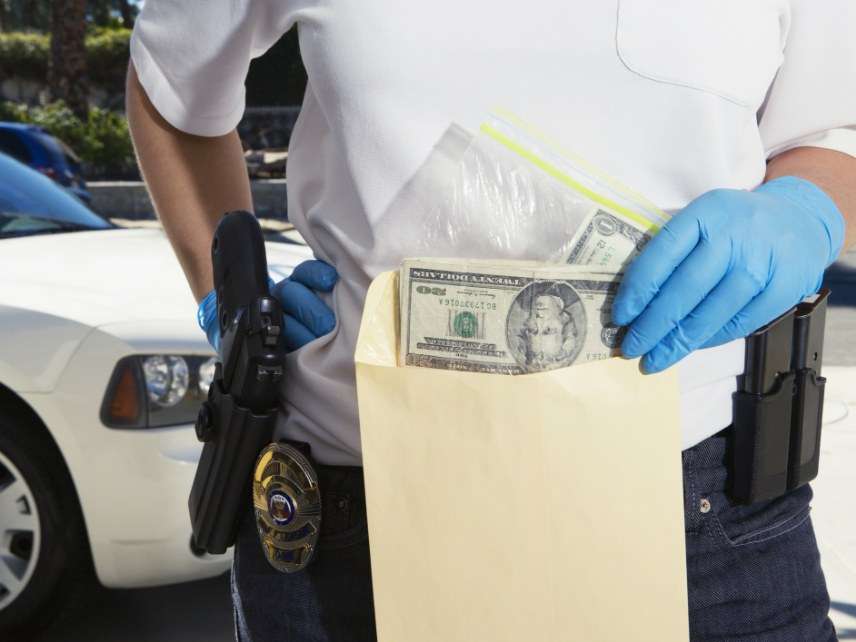What Forfeiture Reforms? New Hampshire Police Bypass State Law, Keep Taking People's Stuff
The Department of Justice's loophole lets officials seize property without having to get a conviction.

In theory, New Hampshire has reformed its asset forfeiture laws. The state passed a bill in June 2016 to keep police from seizing and keeping people's property unless those people have been convicted of a crime.
And yet New Hampshire Public Radio reports this week that the state's cops are still trying to keep stuff seized from people who have been accused but not actually convicting of criminal behavior. Just months after the reform was passed, NHPR reports, state highway patrol officers grabbed a bag with $46,000 in cash out of a man's Hyundai during a traffic stop. They couldn't prove that the man had broken any laws, but they're attempting to keep the money anyway.
Don't blame me. I warned New Hampshire citizens when the reforms were passed that there was a big loophole. The U.S. Justice Department's "Equitable Sharing" program allows local law enforcement agencies to partner with the feds for busts, then funnel the forfeiture through the looser federal program, which doesn't require convictions, back into the local police budgets. Doing this allows them to skirt any state-level restrictions on asset forfeiture.
Some states, such as New Mexico, designed their reforms specifically to keep law enforcement from bypassing restrictions by going to the feds. New Hampshire didn't do that. So police are still attempting to pad their budgets this way. A U.S. attorney says the federal system typically has somewhere between a dozen or two forfeiture cases going on in New Hampshire at any given time, though he doesn't indicate whether those are criminal or civil forfeitures.
John Farley of the U.S. attorney's office in New Hampshire was quick to offer NHPR a typical defense:
Farley couldn't comment on the case of Alex Temple, which his office is handling. He did say the government is not going bring forward cases it doesn't think it can win. And all of these cases, in the end, are decided by a federal judge or jury—there is due process to ensure people's property rights are protected.
"If someone has a really legitimate defense, if they really truly were an innocent owner, if there is a legitimate explanation for why someone has this large quantity of cash, we're not going to just sit back and wait for a trial to see what happens," says Farley. "We're going to take that very seriously in how we assess what to do with that case."
What always gets left out when prosecutors, police, the FBI, and Justice Department officials defend civil asset forfeiture is that this process turns concepts of justice and innocence on their head. Instead of the state proving citizens are guilty of crimes, the citizens have to prove they're innocent. They're not entitled to an attorney, and they have to shell out to try to get their stuff back, which can be a challenge when the police have seized your money. And the government's thresholds for evidence are lower. Prosecutors do not have to prove guilt "beyond a shadow of a doubt" in order to win the case.
Why are police and prosecutors so intent on protecting civil asset forfeiture? Because it's easier to take people's money and other property if you don't have to convict them first. It's just that simple.


Show Comments (37)